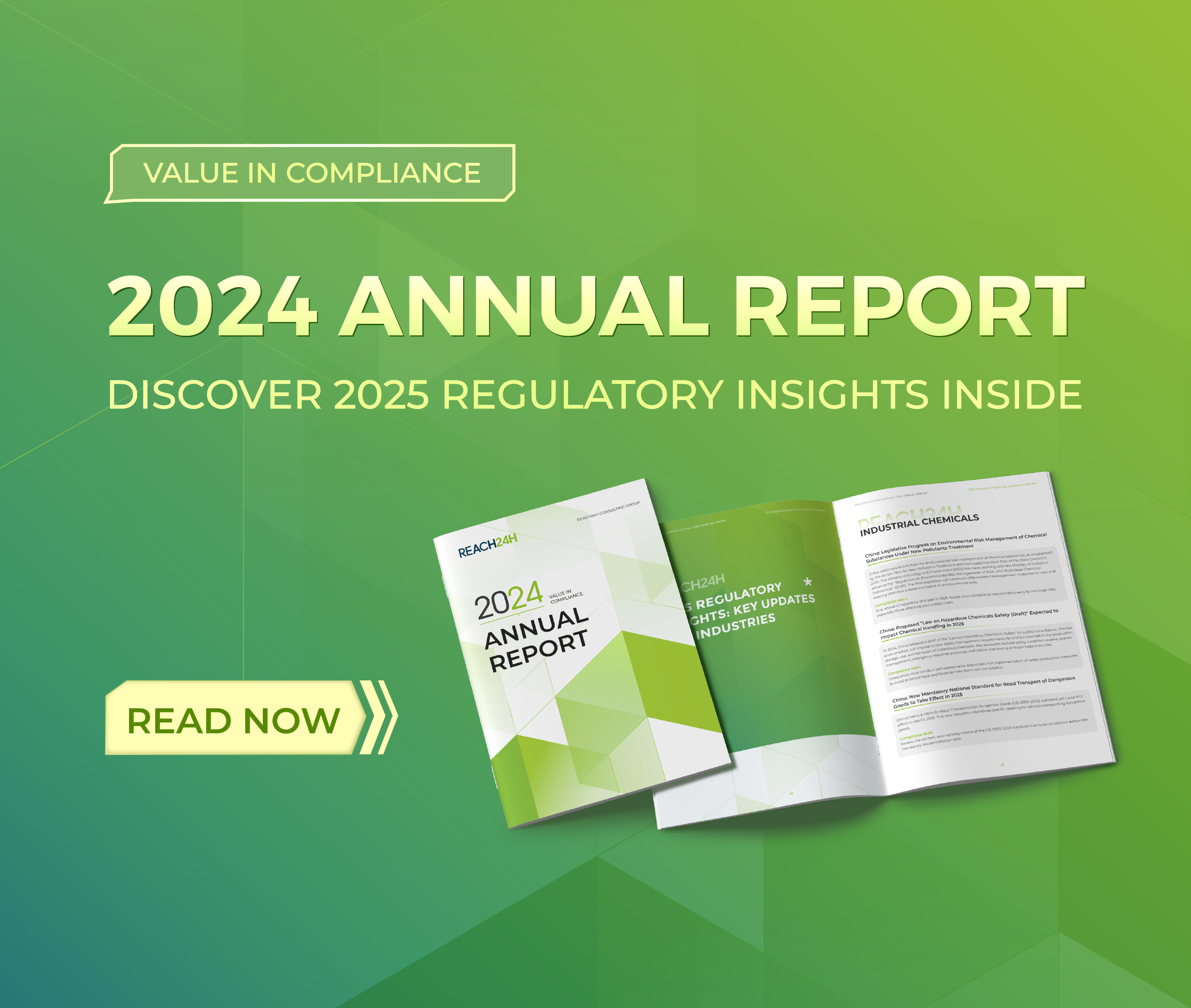2025 Regulatory Insights: Key Sustainability Development Changes
As the regulatory landscape evolves in 2025, sustainability requirements continue to grow in importance. Businesses across industries must navigate new regulations and adapt to changing environmental standards.
Our “2025 Regulatory Insights” series offers an in-depth look at critical updates and practical strategies to help you navigate these changes with confidence.
Key updates from China and the European Union (EU) will impact global operations, and understanding these changes is crucial for staying ahead.
-
China Issues Corporate Sustainability Reporting Guidelines
In April 2024, all three of China’s securities exchanges issued their respective Corporate Sustainability Reporting (CSR) Guidelines, which took effect on May 1, 2024.
These guidelines require:
- Constituents of the SSE 180 Index, STAR 50 Index, Shenzhen 100 Index, or ChiNext Index (if included in the index during the designated reporting period).
- Dual-listed companies in both China and abroad (referred to as “Covered Companies”).
These companies are required to prepare and publicly disclose a corporate sustainability report covering the 2025 calendar year by April 30, 2026.
The CSR Guidelines also encourage other listed companies on these exchanges to voluntarily adhere to the guidelines. The guidelines align with international standards while addressing specific considerations relevant to China.
Compliance Alert:
- Establish ESG governance structures and develop an ESG indicator system based on the Guidelines and Sustainability Report Preparation Guide (Draft).
- Collect relevant information and prepare to disclose the sustainability report alongside the annual report in 2026.
-
EU: CBAM Transition Period Ends in 2025
On December 17, 2022, MEPs and EU governments reached a deal to reform the Emissions Trading System. As determined by the agreements, the transition period for CBAM will end by the end of 2025. The definitive period will start on January 1, 2026.
This transition will involve additional verification steps, where companies must submit data to downstream customers that will be subject to third-party verification. Furthermore, customers must purchase CBAM certificates based on the implied carbon emissions of imported goods.
Compliance Alert:
- Develop data monitoring systems to ensure accuracy and verifiability.
- Engage professional agencies for training on calculating implied carbon emissions and smooth third-party verification.
- Identify key areas for emission reduction and implement energy-saving measures to lower product carbon footprints and enable broader international market access.
-
EU: New CO2 Emission Performance Standards for Cars and Vans Starting in 2025
In January 2025, the EU will implement new CO2 emission standards for passenger cars and light commercial vehicles (vans). Under Regulation (EU) 2023/851 and Regulation (EU) 2019/631, the EU fleet-wide CO2 emission target for new passenger cars is set at 95g CO2/km, while the target for vans is 147g CO2/km.
Compliance Alert:
- Develop vehicles that meet new EU environmental standards, with increased focus on electric and hybrid vehicles.
- Adopt advanced emission monitoring technologies for real-time tracking.
- Build long-term supplier partnerships to drive sustainable technology development.
-
EU: New Battery Regulation to Replace the Batteries Directive in 2025
The New Batteries Regulation, REGULATION (EU) 2023/1542, which came into effect on August 17, 2023, will officially replace the existing Battery Directive 2006/66/EC by August 18, 2025. This regulation imposes stricter sustainability requirements on battery manufacturers, including the calculation and disclosure of carbon footprints, with a focus on light means of transport (LMT) batteries.
Compliance Alert:
- Adopt official methods for calculating and disclosing greenhouse gas emissions across the battery lifecycle.
- Ensure upstream suppliers provide accurate carbon footprint data.
- Comply with new standards for hazardous substances, CE labeling, electrochemical performance, and durability.
-
EU: New EU Deforestation Regulation Delayed to 2025-2026
In 2023, the Regulation on Deforestation-Free Products (EUDR) entered into force, targeting the consumption of deforestation-free products to reduce the EU’s impact on global deforestation and forest degradation.
The primary driver of deforestation is the expansion of agricultural land for commodities such as cattle, wood, cocoa, soy, palm oil, coffee, rubber, and related derived products.
The implementation dates are set for late 2025 for large enterprises and June 30, 2026, for small and micro enterprises.
Compliance Alert:
- Companies should determine whether their products are directly affected by the EUDR based on the CN codes.
- Record all relevant information regarding product production and supply chains, including raw material sources, manufacturing processes, and transportation methods.
- Collect documentation such as land use certificates and environmental compliance certifications and submit due diligence statements.
- Establish strong communication and cooperation mechanisms with the value chain to promote green and sustainable production practices.
Related topics:
- Carbon Neutrality Solution
- GreenScreen® Assessment
- ChemFORWARD: An Alternative Chemical Hazard Assessment Tool for Safer Chemicals


